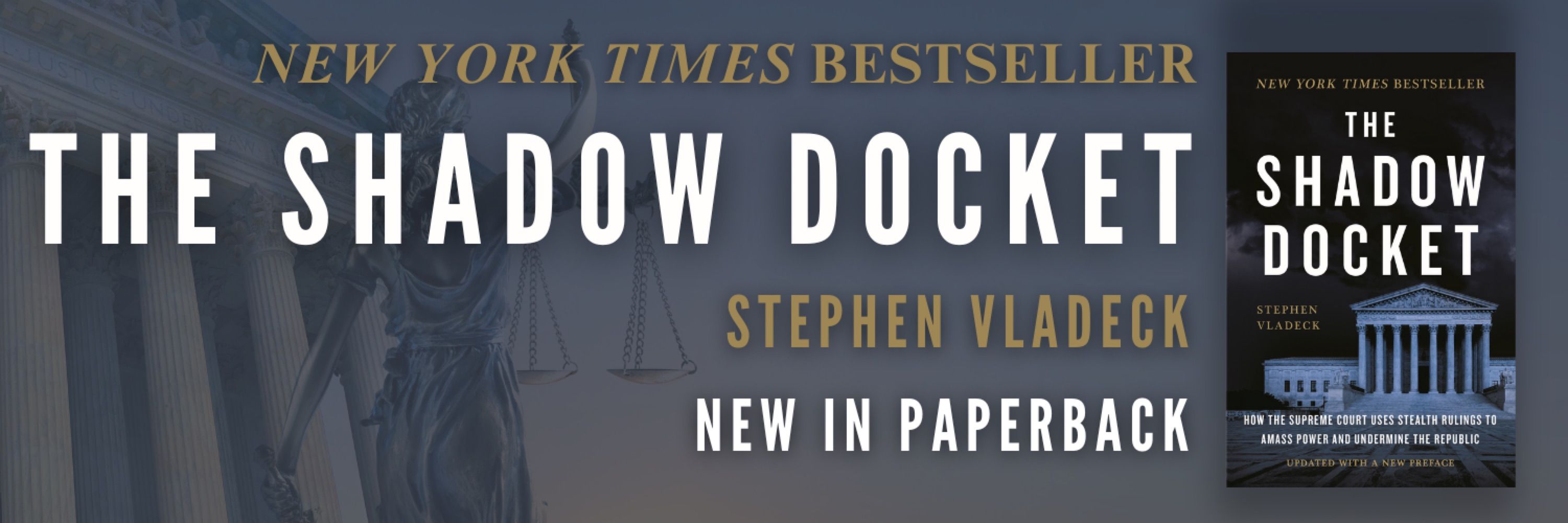
@ksvesq.bsky.social’s husband; father of daughters; professor @georgetownlaw.bsky.social; #SCOTUS nerd @CNN.com
Bio: www.law.georgetown.edu/faculty/stephen-i-vladeck
"One First" Supreme Court newsletter: stevevladeck.com
Book: tinyurl.com/shadowdocketpb ..
more
@ksvesq.bsky.social’s husband; father of daughters; professor @georgetownlaw.bsky.social; #SCOTUS nerd @CNN.com
Bio: www.law.georgetown.edu/faculty/stephen-i-vladeck
"One First" Supreme Court newsletter: stevevladeck.com
Book: tinyurl.com/shadowdocketpb
Stephen Isaiah Vladeck is an American legal scholar. He is a professor at the Georgetown University Law Center, where he specializes in the federal courts, constitutional law, national security law, and military justice, especially with relation to the prosecution of war crimes. Vladeck has commented on the legality of the United States' use of extrajudicial detention and torture, and is a regular contributor to CNN. .. more
“The Court We Need” — scheduled for Fall 2026 release. More important than ever.


